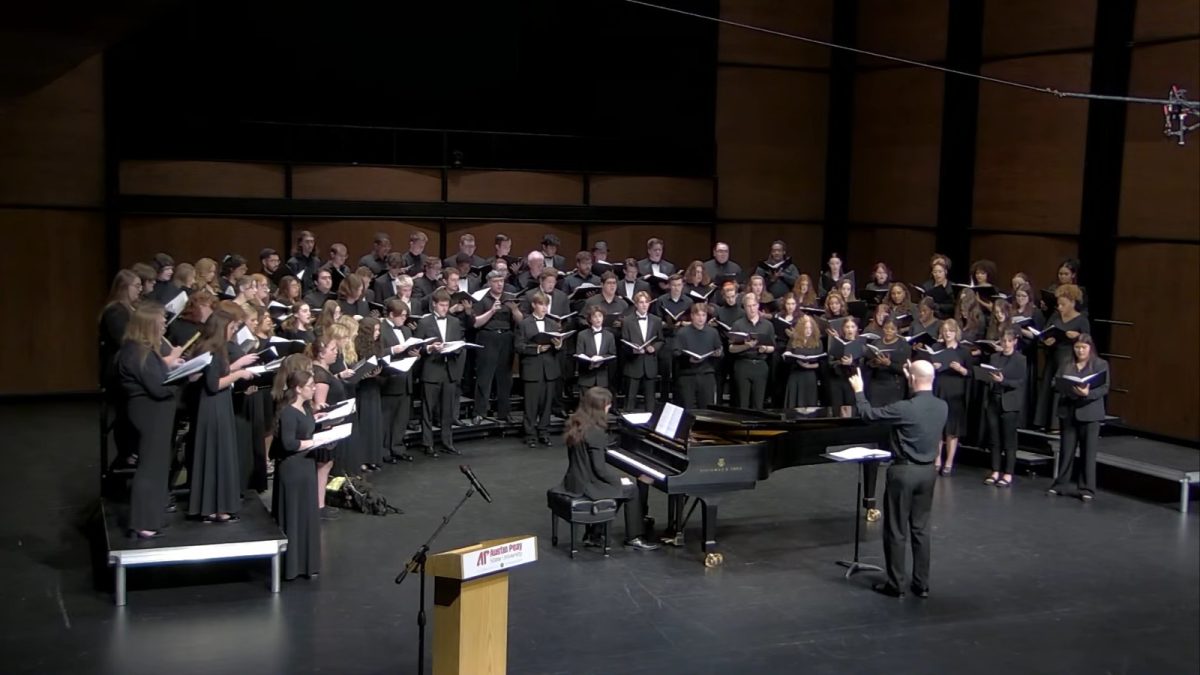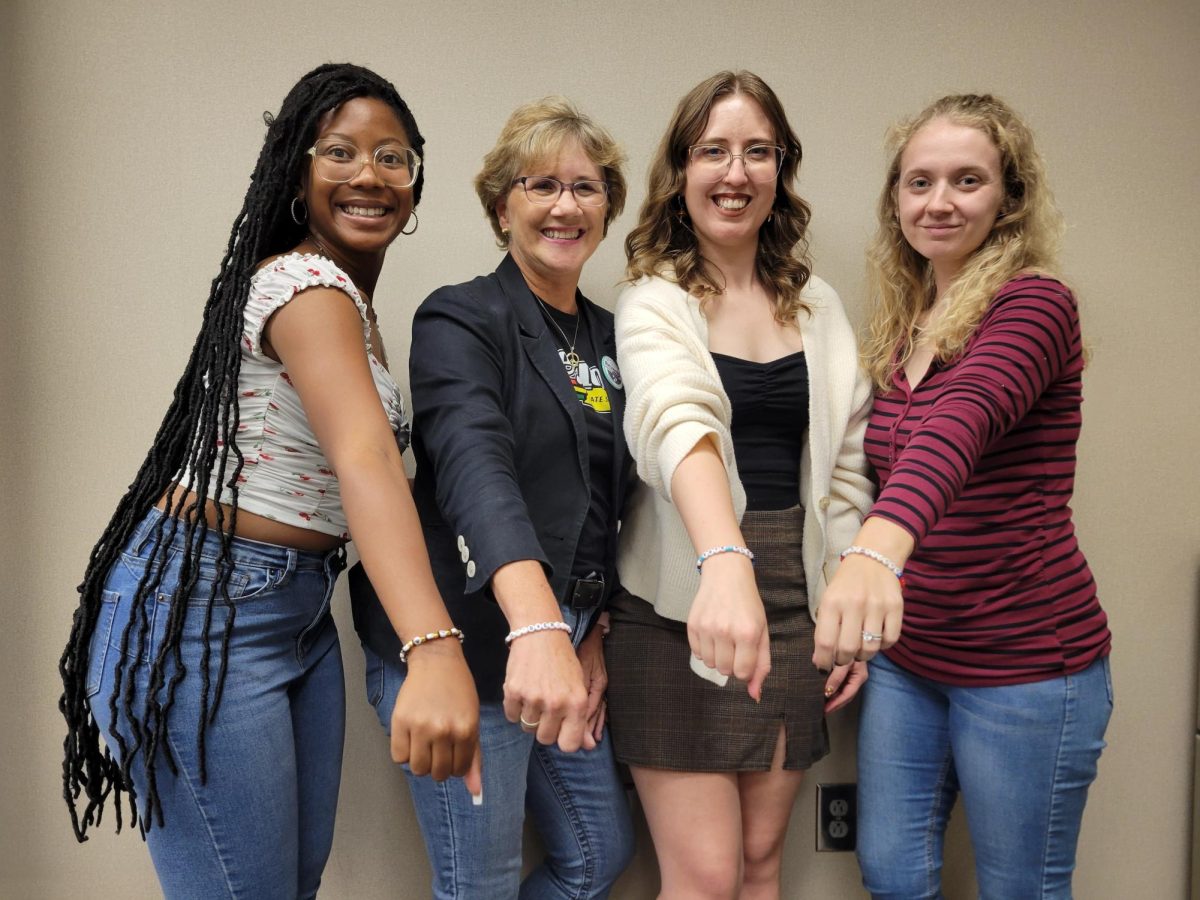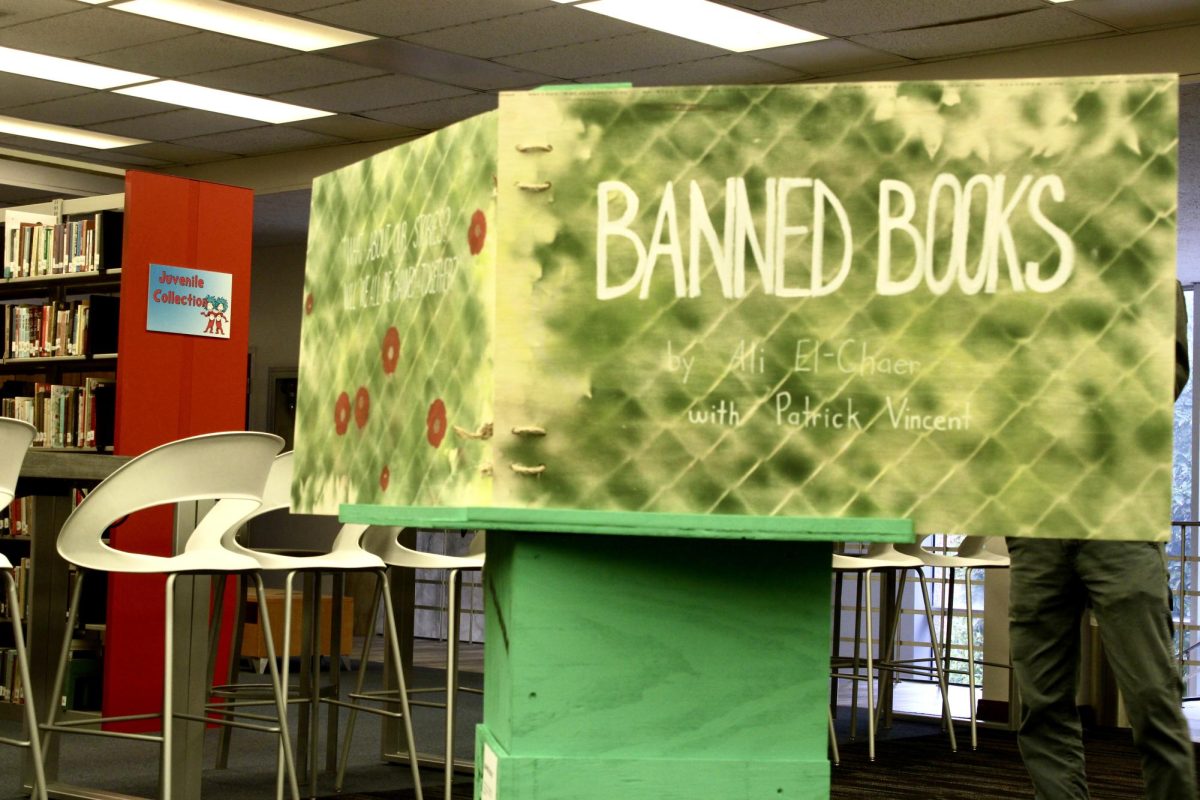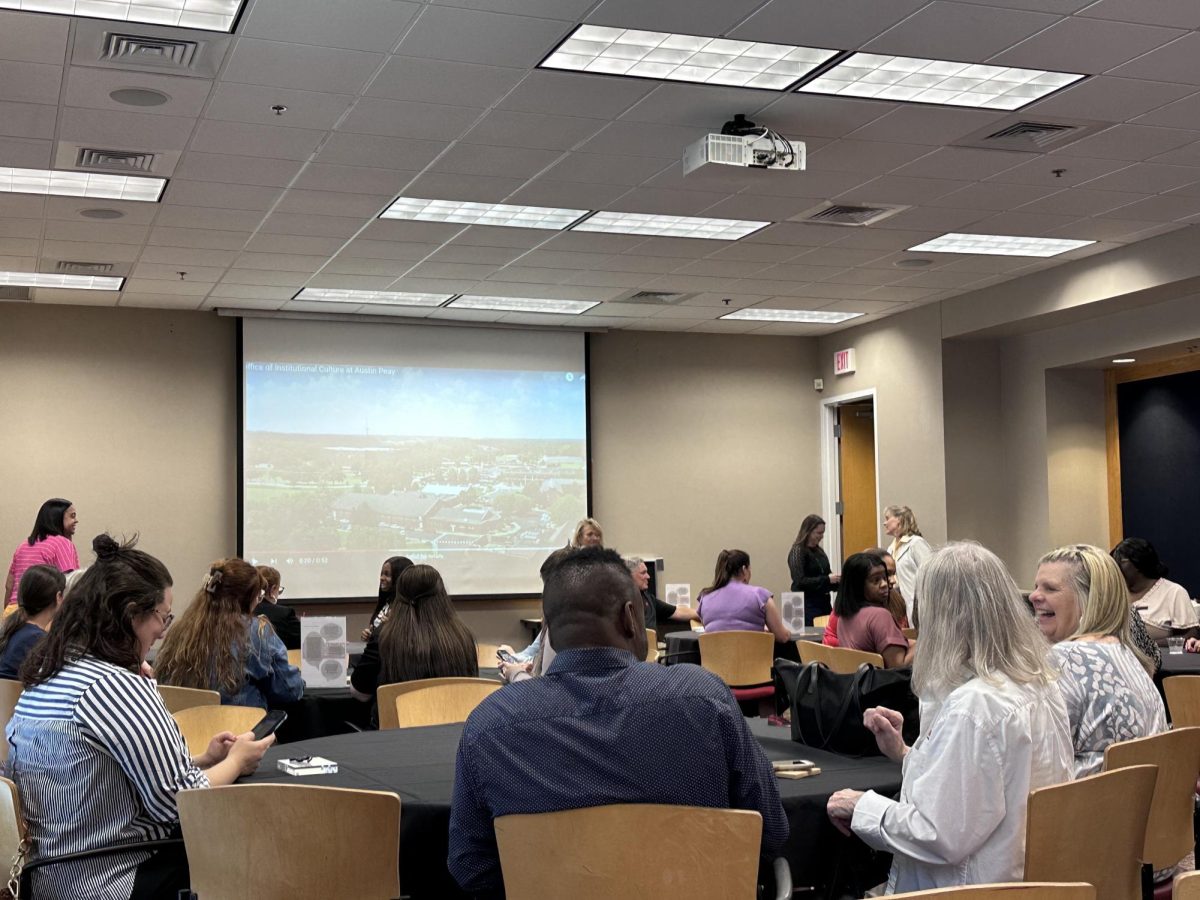Many facets of American society have been hit hard due to the COVID-19 pandemic. Eateries, salon shops, buffets, athletics, universities and hundreds of other businesses and industries. One of them that has particularly been hit hard is the performing arts.
This applies nationally and internationally, the speedy cancellations of movies over the spring and summer season being proof of that.
It also applies to theatre and music, from Broadway to the university level. The APSU Music and Performing Arts departments are no exception.
Due to the pandemic, in-class sessions, practices, and live performances have been severely impacted.
Just recently, on Sept. 8, the APSU COVID Command Team released a statement on music classes having a few cases of students contracting the Coronavirus. Consequently, the team has decided to change music classes to be in session through “remote construction” for a period of two weeks.
Both departments—music and performance art—have had to deal with the strenuous task of adapting to these greatly demanding standards to ensure safety while still providing a proper education.
To some, it has impacted convenience more than comfort.
“Adjustments have been made to mostly online performing or protocols observed for on-ground. The necessary steps for such have affected convenience more than comfort,” Assistant Professor of Musical Theatre-Voice Dr. John Ray said.
Instead of doing in-class performances, some students perform online.
Sometimes, it is trying. But that does not mean that nothing works out in the end.
“Every single professor in the depart is going above and beyond to make sure that our students are able to get the high-quality training they are used to while observing the guidelines. For instance, instead of the regular meeting time for one of my classes, I am scheduling one-on-one coaching sessions with every student in the class outside of that regular meeting time. This is very beneficial to them as it gives them extra time to work that they would not get in the constraints of a normal class time,” Associate Director of Acting and Directing Talon Beeson said.
Needless to say, this ordeal has impacted both students and teachers alike on an almost equal level, especially for singers and actors.
“Singers and actors are super-spreaders due to the strong breath support and projection required. As a result, in-person voice lessons and group acting classes are not happening,” Beeson said.
Simply put, such classes could not function properly while also meeting the COVID-19 prevention protocols. Therefore, classes must move online and try to adapt to the virtual learning environment.
These changes, Beeson says, are not without cost. The performing arts’ curriculum is fundamentally altered by this move online.
“I would ask you to think of your favorite film. Now imagine that the actors are all wearing masks and not allowed to get within 6 feet of each other….is the movie the same? Does it have the same emotional impact?” Beeson said.
Enough said.
All in-person performances are canceled as well as other related productions.
Along with the enforcement of social distancing, other precautions are taken so as to ensure safety. Classrooms are being thoroughly disinfected and wiped down after classes, as well as being marked out so that students will maintain their distance from each other.













